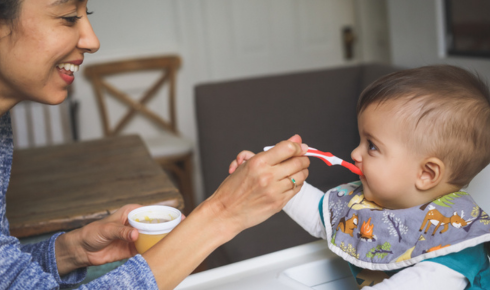Discover the complete guide to baby food in India for 6 months to 1 year. Learn safe first foods, meal plans, and nutrition tips to support your baby’s healthy growth.
Introducing solid foods to your baby is an exciting milestone, but it can also feel overwhelming for new parents. In India, we’re fortunate to have a wide variety of nutritious, culturally rich, and age-appropriate foods that can be adapted for little ones. If your baby is between 6 months to 1 year, here’s a complete guide to baby food that will help you make safe, healthy, and delicious choices.
Why Start Solids at 6 Months?
According to pediatricians, babies should be exclusively breastfed (or formula-fed) for the first 6 months. At this stage, breast milk provides all the necessary nutrition. After 6 months, babies need additional iron, protein, and other nutrients to support their rapid growth and development. That’s where solid foods come in—while continuing breast milk or formula alongside.
Baby Food Journey: Month-by-Month Guide
6–7 Months: First Foods
Start with single-ingredient, soft, and easily digestible foods, that’s right, baby food for 6 months to 1 Year. Introduce one new food at a time, waiting 3–4 days before adding another, to check for allergies.
Best options:
- Rice water or dal water (light and easy to digest)
- Mashed banana
- Steamed apple puree
- Mashed avocado
- Ragi (finger millet) porridge
- Suji (semolina) porridge
- Steamed and mashed carrots or pumpkin
7–8 Months: More Variety
By now, your baby can handle slightly thicker textures. Introduce more grains, vegetables, and fruits.
Best options:
- Khichdi (rice + moong dal, mashed well)
- Oats porridge
- Mashed sweet potato
- Papaya or chikoo (sapota) puree
- Idlis soaked in warm water, mashed
- Boiled and mashed potatoes
8–9 Months: Finger Foods & Protein
At this stage, babies start developing the pincer grasp. You can slowly introduce finger foods and proteins.
Best options:
- Soft steamed vegetables (carrot sticks, beans, peas)
- Small pieces of soft fruits (banana, mango, watermelon)
- Paneer (cottage cheese) cubes
- Well-cooked egg yolk (mashed)
- Upma or daliya (broken wheat porridge)
- Soft paratha or dosa pieces, without spices
9–10 Months: Exploring Textures
Your baby is now ready for chunkier textures and combinations of foods.
Best options:
- Mashed dal + rice with vegetables
- Vegetable upma
- Poha (flattened rice) with milk (softened well)
- Steamed idli or dhokla pieces
- Soft chapati soaked in dal
10–12 Months: Family Foods
By 1 year, most babies can eat what the family eats (with less salt, sugar, and spice). This is the time to introduce family meals slowly.
Best options:
- Soft chapati with dal/sabzi
- Rice with curd
- Stuffed paratha (aloo, paneer, or spinach) mashed
- Uttapam with vegetables
- Dal cheela/pesarattu (mung dal pancake)
- Seasonal fruits (cut into small, safe pieces)
Foods to Avoid in the First Year
Not all foods are baby-friendly. Some can be unsafe or difficult to digest.
- Honey (risk of botulism)
- Cow’s milk as the main drink (use breast milk/formula instead)
- Whole nuts and popcorn (choking hazard)
- Too much salt, sugar, or spicy foods
- Packaged/processed foods
Sample Day Plan for a 9–12 Month Baby
- Morning: Mashed banana or ragi porridge
- Mid-morning: Breast milk/formula
- Lunch: Dal khichdi with ghee + steamed vegetables
- Evening snack: Soft fruit pieces or idlis
- Dinner: Rice with curd or chapati with dal
Final Thoughts
The journey from 6 months to 1 year is about introducing variety, textures, and flavors while keeping meals healthy and simple. Every baby is different—so be patient, flexible, and follow your child’s hunger cues.
Homemade traditional Indian foods are some of the best first foods for babies, providing wholesome nutrition and familiar flavors. By the time your little one turns 1, they’ll be ready to enjoy most of the family meals with you.


